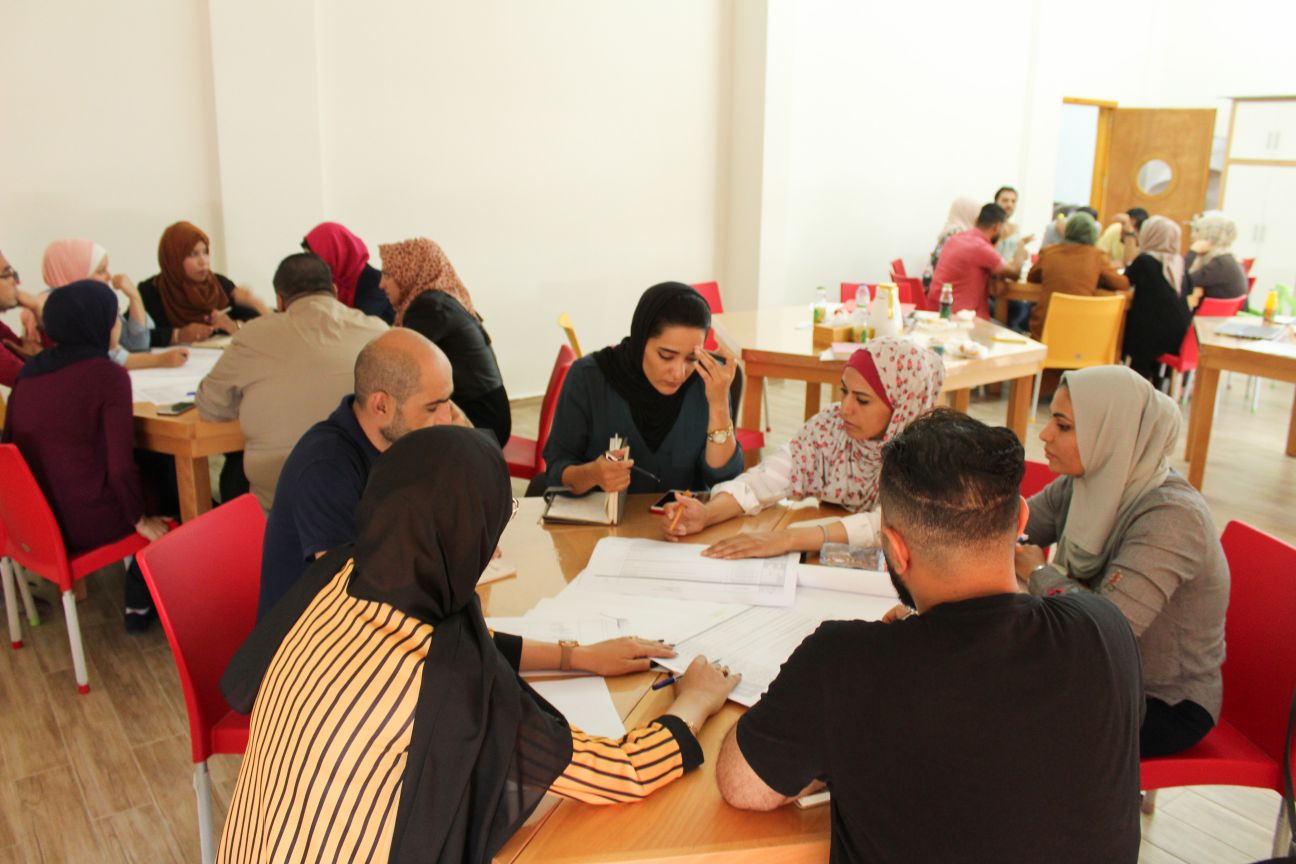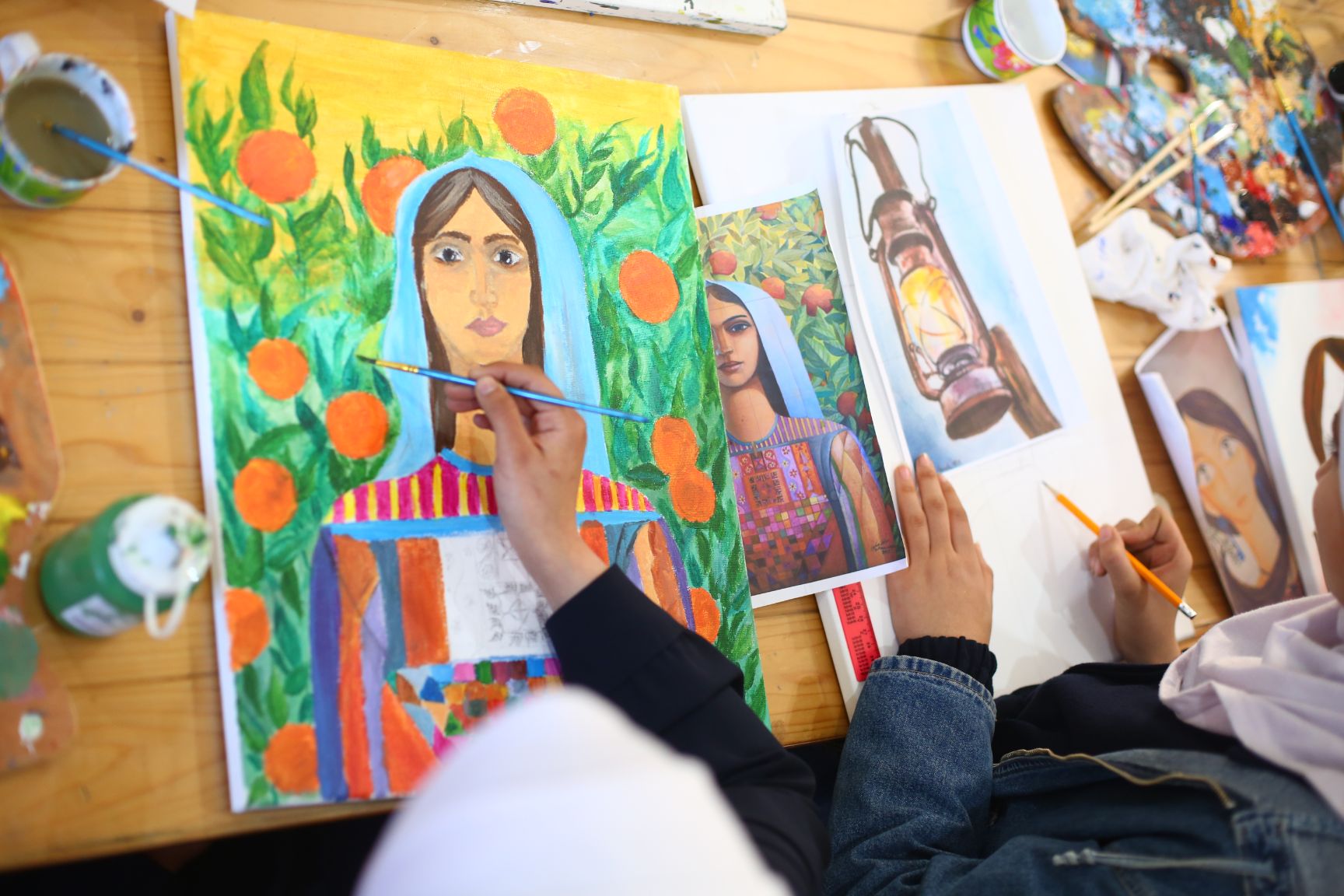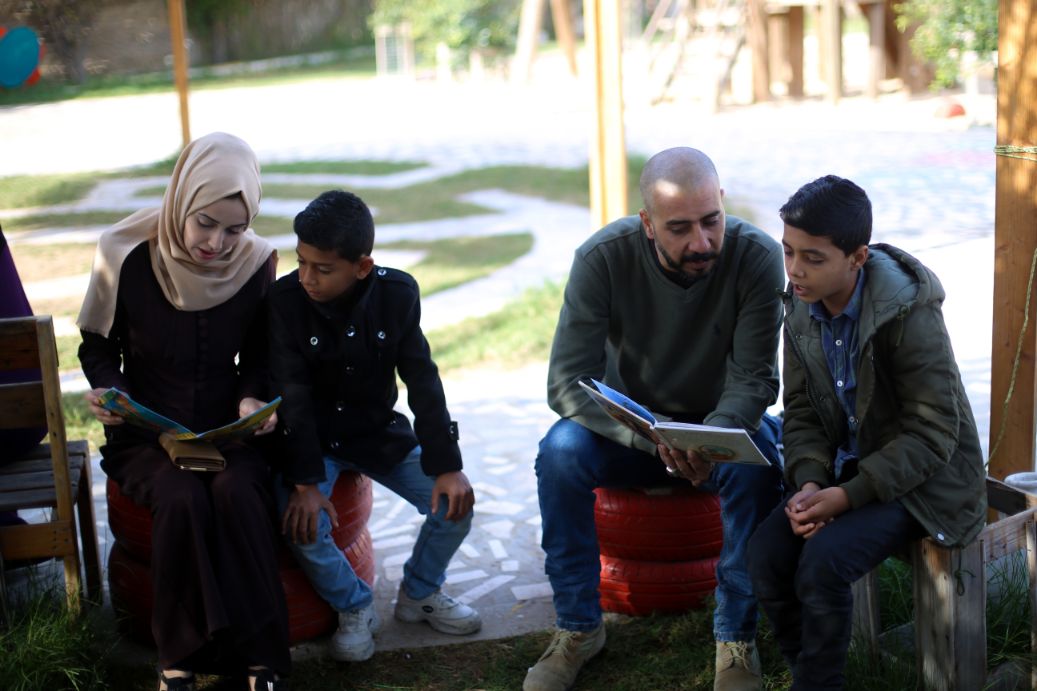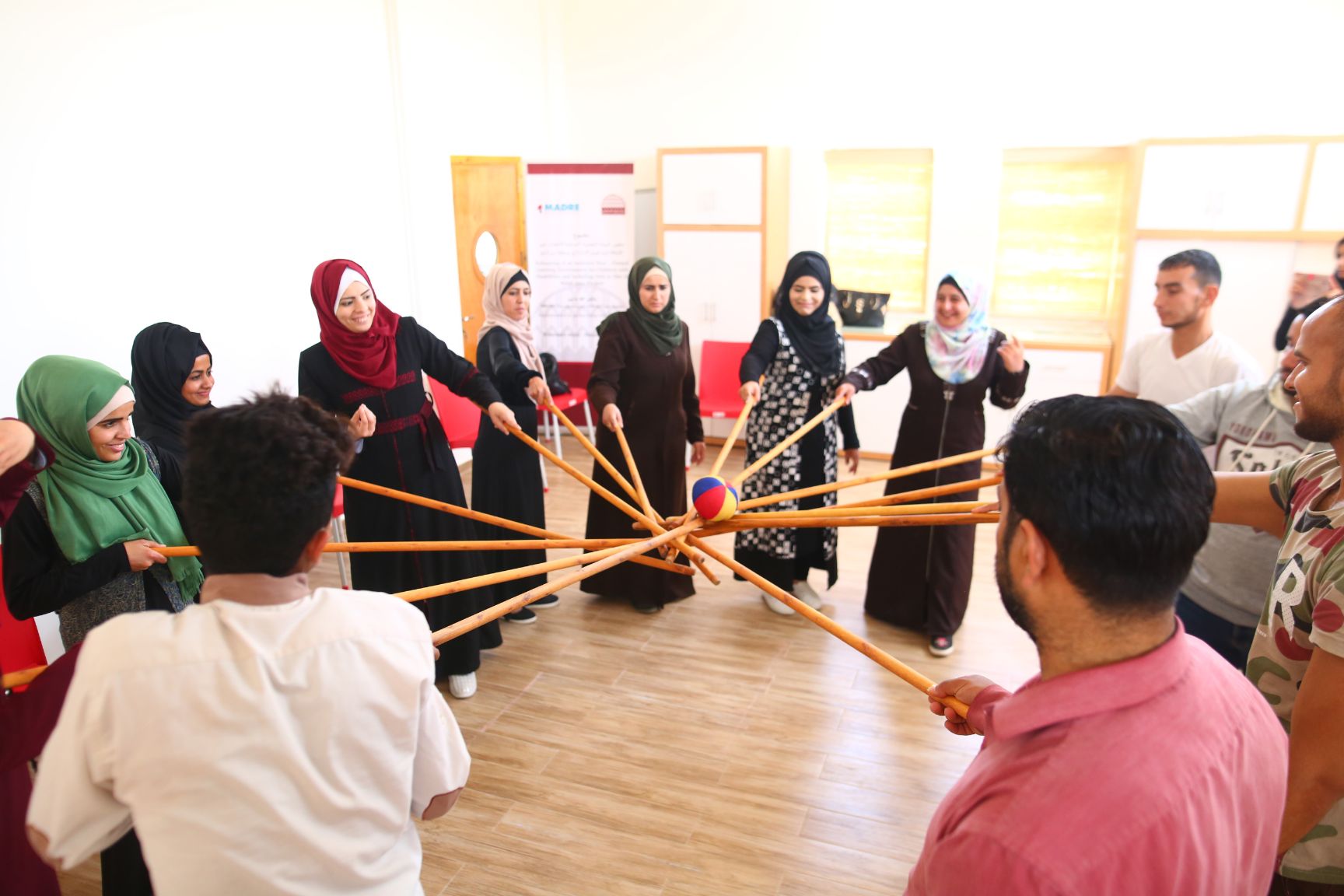Institutional Efficiency and Financial Sustainability Development Program

Institutional Efficiency and Financial Sustainability Development Program
NAWA designed the Institutional Efficiency and Financial Sustainability Development Program, and identified four points to direct the course of action to achieve and measure the positive change in its institutional efficiency and reach for financial sustainability as the following:
NAWA enjoys a higher level of efficiency, effectiveness and accountability:
Several Palestinian civil organizations face institutional challenges in various fields such as effectiveness, efficiency, accountability and governance. Institutional building is an essential strategic approach that fortifies the process of enhancing the abilities of institutions to create and manage positive change effectively to boost their efficiency, professionalism and sustainability.
NAWA believes in the institutional building to encounter such challenges and find solutions that respond effectively to the needs of society and the work environment. NAWA will invest and utilize the interest of different bodies and available opportunities in the field of institutional capacity building; this will be achieved by developing, updating, institutionalizing and digitizing (if possible) administrative, technical, technological and financial work policies and systems by preparing the policies and handbooks in a participatory manner and in line with NAWA teams and targeted groups. NAWA will also invest in building its staff abilities to concentrate on practical guidance and application. Iit will look for sustainable results through monitoring, evaluation and accountability to ensure quality and efficiency of the work environment and strengthen relations with society and targeted groups.
NAWA Improves Access To Financial Sustainability And Resources Development
One of the biggest challenges facing Palestinian civil society organizations is the lack of financial sustainability and increased dependence on external finance - a direct result of the local and international financial crisis. The lack of sustainability contributed to undermining the private sector’s ability to provide basic services and meet its financial commitments towards civil society organizations, and the dependence on external finance created an unpredictable and unstable situation, leading to competition among the organizations for funding.
As one of its major priorities, NAWA seeks to develop a working model to achieve financial sustainability and resource development. This endeavor is based on creating long-term finance strategies and resource development plan. The plan must also be constantly updated to stay relevant in the work environment by strengthening the relationship with current donors, looking for new sources of finance, and promoting opportunities for self-finance. NAWA also seeks to find long-term finance that focuses on program planning and achieving sustainability and job security.
NAWA Work Environment Becomes More Inclusive
In September 2015, the United Nations approved the 2030 Agenda for Sustainable Development to direct international efforts towards sustainability between the years 2016-2030. The Agenda includes 17 sustainable development goals (SDGs), with a major focus on persons with disabilities.
NAWA aspires to become a more inclusive association in the next three years, by facilitating the integration of people with disabilities in all their activities. This step reflects NAWA’s commitment and respect to the local and international conventions and laws and its sincere efforts to work in accordance with them. NAWA will work on the following to achieve this result:
- First, it will adapt and equip the Association premises according to the approved technical specifications for people with disabilities.
- Second, NAWA will adopt the standards and practices of the Rights-Based Developmental Approach into the Association’s components and work. This will increase the opportunity for the persons with disabilities to participate in NAWA activities by developing and approving work systems, policies and mechanisms adaptable with Approach.
NAWA Improves Preparedness, Response and Resilience During Emergencies
NAWA is a part of the Palestinian society that has been suffering for years from the Israeli occupation and its implications, including the siege imposed on the Gaza Strip which had completed 11 years at the time of drafting the strategic plan 2018-2020. Gaza witnesses economic and political deterioration and has endured the outbreak of three devastating attacks in five years. These circumstances have threatened the Palestinians’ ability to endure and face sudden pressures and shocks. Promoting preparedness, response and resilience during emergencies has become one of the essential roles that Palestinian civil society organizations play in Gaza.
Considering the limited availability of financial resources and the huge consequences of emergencies during the few past years, NAWA believes in the criticality of resilience, preparedness and response during emergencies so that it can tackle the needs of the local community and the targeted groups (particularly children). NAWA also works on developing effective models to address these needs on the ground during and post emergencies. Therefore, it will develop and institutionalize a comprehensive policy and plan for crisis and risk management by preparing a handbook and promoting its staff abilities in this domain. NAWA will also focus on the provision of psychological support services for the affected categories during and post emergencies; in addition, it will coordinate and network with the concerned stakeholders to reach groups in need, identify their challenges and conduct responsive interventions as soon as possible.





